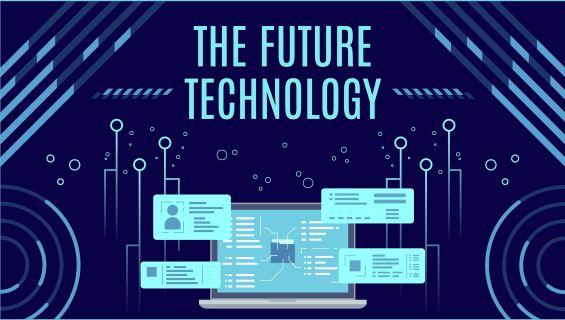
Many industry experts and veterans believe that implementing governance measures will guarantee AI safety and trustworthiness.
2023 saw the rise of Large Language Models (LLMs); however, it did not take the industry long to realize that we hurriedly made such powerful models accessible to the public without implementing robust and adequate safeguards. Nevertheless, we have learned our lesson, and now is the time to make it right.
2023 will be the year of Generative-AI (GenAI), and 2024 will be the year of its GOVERNANCE.
Regulations are making their way!
Let us draw inspiration from the EU AI Act, the most comprehensive approach to AI regulation thus far. The Act underscores the importance of categorizing AI applications according to their risk profiles and enforces stricter measures commensurate with their potential impact, mitigating severe consequences.
The global consortium, comprising academic researchers, leading technology companies, and policymakers, increasingly emphasizes the need for robust governance of large models to ensure their responsible adoption.
The foundation model developers have also started demonstrating accountability for their models. It is evident by Microsoft’s recent announcement to protect customers from legal repercussions stemming from copyright infringement related to their products.
Governance finds Its roots in ethics
As an AI Ethicist, one of the biggest challenges I often face is aligning everyone on the definition of ethics. Frequently, questions arise such as, "Whose ethical principles, whose code of moral conduct, ethical according to which standards?"
The recent technological developments in the form of GenAI systems place even higher equity in enforcing ethical AI.
As the law becomes enforceable, it prompts a fundamental question: How can we guarantee that AI systems are built in a responsible and trustworthy manner, working for the greater good of society? This concern extends beyond just the organizations utilizing LLMs or the developers of foundational models; it encompasses all of us, including the users of these systems.
The actual test lies in whether we would uphold the highest standards of responsibility and ethics, even in the absence of legal oversight. What actions and choices would we make when no one monitors or enforces compliance?
The rise of AI Governance
As we ponder these questions, the underlying theme of AI governance starts to surface.
Let us define it first. AI governance includes all things ethics, regulations, and policies. It places a significant responsibility on the policymakers and regulators.
As the use of AI technologies becomes increasingly ubiquitous, the challenge lies in fostering innovation while upholding ethical considerations.
I have outlined five crucial components to balance innovation with governance:
- Having interoperable global regulations that transcend borders is vital for creating a shared foundation for evaluation and oversight.
- Ensuring industry-specific regulations are in place is equally important to address the unique risks associated with different sectors and domains.
- Building an independent audit committee responsible for assessing the ethical implications of AI systems is a critical step. This committee can provide unbiased evaluations and recommendations.
- Establishing ethics review boards within organizations should assess potential biases, discrimination, privacy violations, and other ethical concerns, not just during the ideation phase but also throughout the development and deployment process.
- Recognizing that risks in AI manifest in diverse ways, no single entity can foresee and manage them comprehensively. Therefore, all stakeholders in the AI governance ecosystem, including regulators, developers, data scientists, and decision-makers, should stay updated to understand the evolving implications of complex AI systems and make timely amendments.
Source: Author
Such collaboration brings a diversity of perspectives that creates a robust governance framework. It helps address the challenge of "unknown unknowns," where authorities may not even be aware of what they don't know, making it challenging to design comprehensive guardrails.
Awareness
The formal processes and systems take time to develop and come to life; meanwhile, it is crucial to foster awareness and promote an ethical mindset.
- It requires a thorough understanding of the technical aspects of what it means for a system to be fair and unbiased. This includes grasping the technical underpinnings of machine learning algorithms and how they can introduce bias.
- Ensuring future developers are well-versed in techniques to detect and mitigate bias in AI systems.
- The art of asking the right questions, overcoming impostor and self-doubt. Encourage developers to ask questions such as, "How can I explain the internal workings of an algorithm to foster trust in its decision-making process?" and "How can I codify ethical expectations in the AI system?"
- Conducting ethical and responsible AI awareness sessions, which include discussions about the social and ethical implications of AI technology. Providing real-world case studies and practical examples that illustrate the impact of AI on society helps developers understand the consequences of their work.
- Encouraging diversity and inclusion in AI development teams, as they bring a more comprehensive range of perspectives and are more likely to identify and address potential biases.
To summarize, the journey to a responsible and ethical AI future is marked by two foundational factors – robust governance structures and cultivating an ethical mindset. While formal processes are underway, let us demonstrate accountability to ensure that AI-developed systems bring benefits to society and humanity at large.
Vidhi Chugh is an AI expert, recognized as a top innovator, and founded “All About Scale” for AI governance.
Image Source: Freepik

 In
In
Add new comment